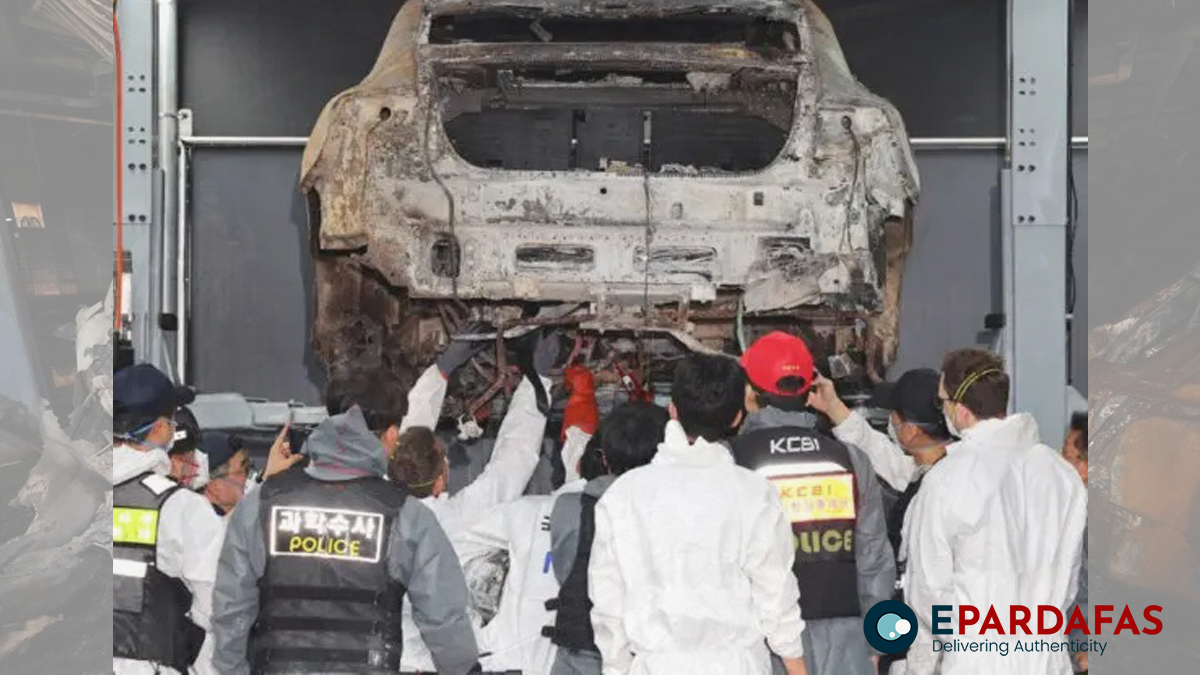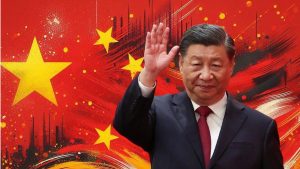
Mercedes-Benz Korea Reveals Chinese-Made Battery Linked to Massive Car Fire
On August 13, Mercedes-Benz Korea publicly identified the battery supplier involved in a recent and catastrophic electric vehicle (EV) fire, sparking renewed concerns over the safety of Chinese-made EV batteries. The disclosure followed an incident on August 1, when a Mercedes-Benz EQE 350 burst into flames in the underground parking lot of an apartment complex in Incheon, west of Seoul. The blaze rapidly spread, resulting in the destruction or severe damage of 140 vehicles and causing significant structural damage to the building. Some residents were forced to evacuate to temporary shelters as a result.
Mercedes-Benz Korea confirmed that the battery in the EQE 350 model was supplied by Farasis Energy, a Chinese manufacturer. This revelation has heightened worries about the safety and quality of Chinese-made EV batteries, particularly in light of past incidents. In 2021, China’s BAIC Group recalled approximately 32,000 electric vehicles, citing fire risks associated with Farasis Energy’s batteries.
Concerns over the reliability of Chinese EV batteries are not new. Numerous reports from Chinese media and social media have highlighted incidents of electric vehicles catching fire spontaneously or following accidents. Such incidents have fueled debates over the safety and quality control standards in the Chinese EV battery industry.
Taiwanese economist Huang Shicong weighed in on the issue, stating that while China is the world’s largest producer of EV batteries, the overall quality remains problematic. “Explosion or fire often occurs because of poor quality,” Huang noted, emphasizing the dangers posed by substandard batteries.
The risks associated with EV batteries are particularly acute due to the nature of lithium-ion technology. When these batteries catch fire, they can burn at temperatures significantly higher than those of conventional gasoline-powered vehicles. Moreover, such fires are notoriously difficult to extinguish, a phenomenon known as the battery’s thermal runaway effect—a chain reaction within battery cells that can lead to uncontrollable fires.
Chu Yueh-chung, an Assistant Professor of Finance at Southern Taiwan University of Science and Technology, pointed out that many global automakers, including Tesla, use Chinese-made batteries. However, he noted that the quality of these batteries varies widely. “For the sake of their own reputation and brand, they have to do the test themselves,” Chu said, stressing the need for automakers to take responsibility for the quality control of their supply chains.
The EQE 350, which has a starting price of around $67,000 in South Korea, is one of the latest casualties in a growing list of EVs affected by battery-related issues. The incident has sparked public anxiety in South Korea, prompting the government to announce on August 13 that it would ask automakers to voluntarily disclose battery information for EVs. Additionally, the government plans to introduce comprehensive electric vehicle safety measures in the coming month.
This incident also highlights the global push for greater transparency in the EV industry. Last year, the European Union passed a regulation mandating a “battery passport” for EVs, which will detail the manufacturers and the origin of materials used in the batteries. This regulation is set to take effect in 2027, marking a significant step toward ensuring the safety and traceability of EV batteries worldwide.
As the debate over EV battery safety continues, it is clear that automakers and governments alike must work together to address these concerns and ensure the safe adoption of electric vehicles on a global scale.













Comments